In today’s rapidly evolving business landscape, organizations are constantly seeking ways to adapt and thrive. Consulting strategies play a crucial role in helping businesses navigate challenges, optimize operations, and achieve their goals. This research-based post explores the most effective consulting strategies used by leading firms to drive business success, offering valuable insights for both consultants and organizations looking to leverage external expertise.
1. Strategic Planning and Alignment 🎯
One of the fundamental consulting strategies is strategic planning. This involves working with organizations to develop clear, actionable plans that align with their long-term goals. Strategic planning ensures that all business activities are directed towards achieving the overarching vision of the company.
Key Components:
- Vision and Mission Alignment: Ensuring that the company’s activities and goals are aligned with its vision and mission.
- SWOT Analysis: Conducting a comprehensive analysis of the organization’s strengths, weaknesses, opportunities, and threats.
- Goal Setting: Defining specific, measurable, achievable, relevant, and time-bound (SMART) goals.
- Implementation Roadmap: Creating a step-by-step plan to achieve the set goals, including timelines, resources, and key milestones.
Example in Practice:
A retail company seeking to expand its online presence might engage a consultant to develop a digital transformation strategy. The consultant would conduct a SWOT analysis, identify key areas for digital investment, and create a roadmap for implementing new technologies and processes to achieve online growth.
2. Change Management 🔄
Change management is a critical consulting strategy, especially in times of organizational restructuring, mergers, or the implementation of new technologies. Effective change management strategies help organizations transition smoothly while minimizing disruption.
Key Components:
- Stakeholder Analysis: Identifying and understanding the needs and concerns of all stakeholders involved in the change process.
- Communication Planning: Developing clear communication strategies to ensure transparency and keep all stakeholders informed.
- Training and Development: Providing necessary training to employees to equip them with the skills needed to adapt to changes.
- Resistance Management: Identifying potential resistance to change and developing strategies to address and mitigate it.
Example in Practice:
A manufacturing company implementing a new enterprise resource planning (ERP) system might work with a consultant to manage the change process. The consultant would develop a communication plan, provide training to employees, and work closely with management to address any resistance, ensuring a smooth transition to the new system.
3. Process Optimization 📈
Process optimization is a strategy focused on improving the efficiency and effectiveness of business operations. Consultants use various methodologies to analyze and enhance processes, reducing costs, improving quality, and increasing productivity.
Key Components:
- Process Mapping: Creating detailed maps of current business processes to identify inefficiencies.
- Lean Six Sigma: Applying Lean Six Sigma principles to eliminate waste and improve process quality.
- Benchmarking: Comparing the organization’s processes with industry best practices to identify areas for improvement.
- Continuous Improvement: Establishing a culture of continuous improvement where processes are regularly reviewed and enhanced.
Example in Practice:
A healthcare provider facing high operational costs might hire a consultant to optimize their billing and patient management processes. The consultant would map the existing processes, apply Lean Six Sigma to eliminate inefficiencies, and implement a continuous improvement plan to ensure ongoing optimization.
4. Market Entry and Expansion 🌍
For companies looking to enter new markets or expand their presence, market entry and expansion strategies are vital. Consultants assist organizations in navigating the complexities of entering new geographies or industries, ensuring a successful launch and sustainable growth.
Key Components:
- Market Research: Conducting thorough research to understand the target market, including customer needs, competitive landscape, and regulatory environment.
- Entry Strategy Development: Developing a tailored market entry strategy, such as joint ventures, partnerships, or direct investment.
- Localization: Adapting products, services, and marketing strategies to meet the cultural and regulatory requirements of the new market.
- Risk Assessment: Identifying potential risks associated with the market entry and developing mitigation strategies.
Example in Practice:
A technology company looking to expand into the Asia-Pacific region might engage a consultant to develop a market entry strategy. The consultant would conduct market research, identify potential partners, and create a localization plan to tailor the company’s offerings to the preferences and regulations of the target market.
5. Financial Advisory and Restructuring 💰
Financial advisory and restructuring strategies are essential for organizations facing financial challenges or seeking to optimize their financial performance. Consultants provide expert advice on restructuring debt, improving cash flow, and enhancing overall financial health.
Key Components:
- Financial Analysis: Conducting a thorough analysis of the organization’s financial statements to identify areas of concern.
- Debt Restructuring: Developing strategies to restructure existing debt, including negotiating with creditors and refinancing options.
- Cost Reduction: Identifying and implementing cost-saving measures to improve profitability.
- Capital Raising: Assisting organizations in raising capital through equity or debt financing to support growth or turnaround efforts.
Example in Practice:
A struggling retail chain might work with a financial consultant to restructure its debt and improve cash flow. The consultant would analyze the company’s financials, negotiate with creditors, and implement cost reduction strategies to stabilize the business and pave the way for recovery.
Conclusion: Leveraging Consulting Strategies for Success 🚀
Consulting strategies are essential tools for organizations looking to navigate challenges, seize opportunities, and drive success. Whether through strategic planning, change management, process optimization, market expansion, or financial restructuring, consultants bring valuable expertise and insights that can make a significant difference.
Kaurex Ltd specializes in delivering tailored consulting strategies that align with your organization’s unique needs and goals. With our deep industry knowledge and commitment to excellence, we help businesses achieve their full potential, fostering growth, innovation, and sustainable success.
